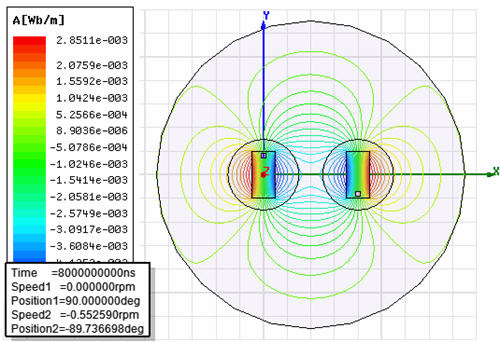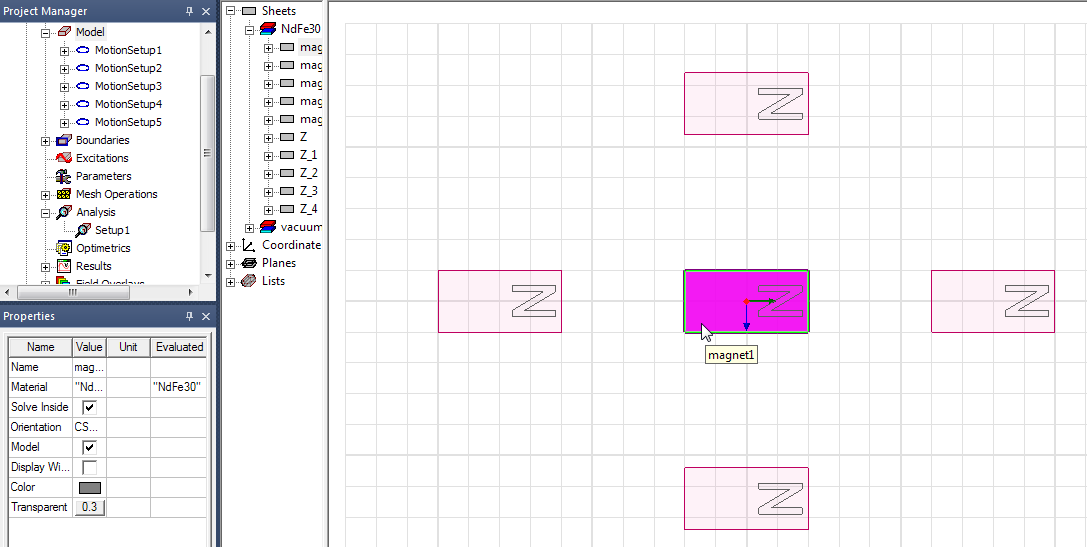Setting Up Motion for Transient Projects
For projects where you selected transient as the solution type, you can define how the model components move in relation to one another. This is accomplished by assigning a MotionSetup to a Band object. Two or more motion bands may be assigned, each with its own independent motion characteristics. Multiple motion bands are used primarily for certain types of motors where multiple rotors may rotate about a common central axis; however, other applications are possible as shown in the following examples.
Example - Two Bands of Motion
The project shown below comprises two rectangular magnets, each surrounded by a band object with a MotionSetup assigned to it. When one magnet moves, the other magnet realigns itself. Also note that the solution context display shows the position and speed for both motion setups.

Example - Multiple Bands of Motion
The magnet project shown below comprises five bar magnets. When the center magnet (MotionSetup1) moves, the other magnets also move.

Related Topics
Showing and Hiding Motion Objects
Technical Notes: 3D Transient
Technical Notes: Meshing Aspects for 3D Transient Applications With Motion
